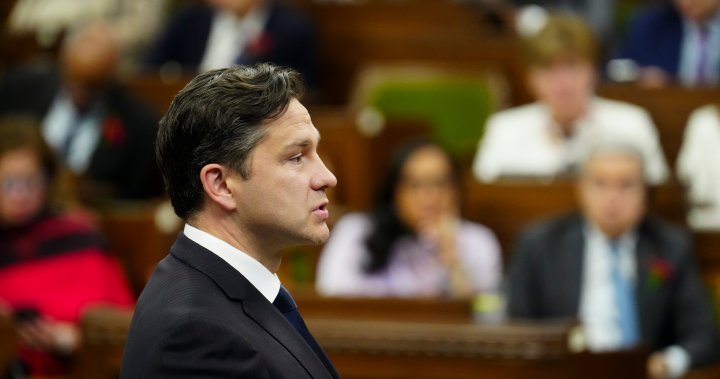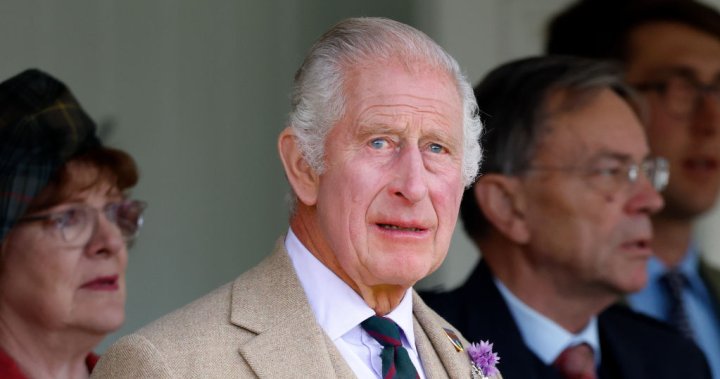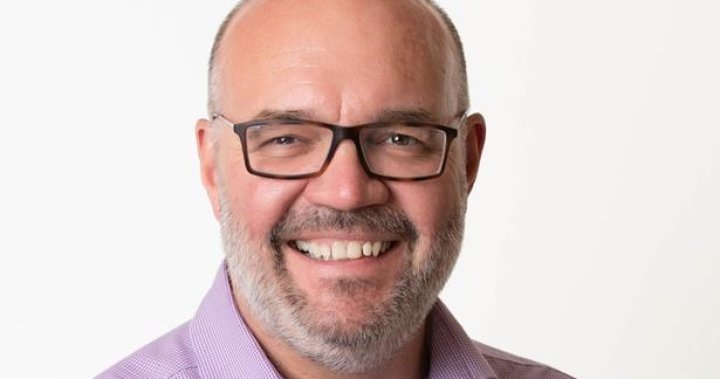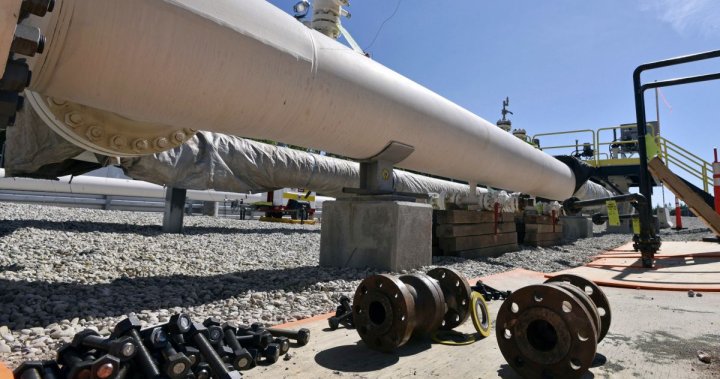Conservative Leader Pierre Poilievre says his treatment-centric approach to tackle the opioid crisis would face significant challenges if he was prime minister.
“Oh, it will definitely be a challenge,” Poilievre said in an interview with Global News’ Focus B.C. host Richard Zussman in Ottawa on Thursday when asked about staffing additional treatment facilities and finding space.
“And that’s why we need to get rid of all of the money that we’re wasting on NDP, Liberal activists, on corrupt pharmaceutical companies that are profiting off of this death and misery and put all of those resources into treatment and recovery.”
B.C.’s three-year drug decriminalization pilot project was thrust into the national spotlight last week when Premier David Eby requested the Criminal Code exemption be modified to allow police to intervene in illicit public drug use once again.
Poilievre made this the focus of question period in the House of Commons, repeatedly asking when the change will be made.
On Tuesday, the opposition leader was ejected from the House of Commons for the day for refusing to withdraw and apologize for saying it is a “wacko policy from a wacko prime minister.”
Under the House standing orders, members of Parliament can’t make comments that personally disparage another member.

In response, Prime Minister Justin Trudeau accused Poilievre of having ties to the far-right, including not distancing himself from an endorsement from Alex Jones, who lost a multi-billion dollar defamation suit for saying the Sandy Hook Elementary mass shooting did not happen.
The email you need for the day’s
top news stories from Canada and around the world.
“Do you accept his endorsement?” Zussman asked Poilievre.
“No, and I don’t listen to him. The only person that talks about him and promotes him is Justin Trudeau,” Poilievre replied.
Poilievre says the B.C. pilot is being driven by “radical activists, bureaucrats and pharmacists” he accuses of “making a fortune” off the addiction crisis.
“So, we need to cut off those radicals and fire the people, the NDP, Liberal activists in the public health bureaucracy, who have helped cause this mayhem and enables Trudeau and Eby to bring in a policy that has killed 2,500 people in one year alone,” Poilievre said.
In 2023, 2,546 British Columbians died of overdoses associated with the unregulated drug market. Fentanyl was detected in nearly 85 per cent of these deaths, with other opioids present in the bodies of 20 per cent of the people who died.
Early data from January and February shows drug-related deaths in B.C. are below both 2023 and 2022 levels for the same months.

B.C. Chief Medical Health Officer Dr. Bonnie Henry recommended the province expand its “prescribed safer supply” program back at the beginning of February.
Of the estimated 115,000 British Columbians struggling with opioid use disorder, only 4,331 have accessed the prescribed safer supply program according to Henry’s Feb. 1, 2024, report.
Henry said that the potential to help save lives needs to be weighed against the risk of broader harms.
“Effective interventions to address the certain and severe harms from the unregulated drug supply take priority at this time over the potential and even likely harms to the population from diversion,” Henry’s report said.
Prior to her retirement, B.C.’s former chief coroner Lisa LaPointe said in December that expanding access to safer supply is the “fastest way to reduce deaths” during the crisis.
Poilievre called safer supply an “inaccurate and dishonest term,” and Zussman asked Poilievre what information he has that Dr. Henry and LaPointe don’t.
“I know what everybody knows — the result. And the results are clear. The results are in. And it’s been an absolute deadly disaster that has killed 2,500 people, for which Trudeau and the NDP and all of the activists and bureaucrats that work for them are to blame,” Poilievre said.
The Tory leader and his caucus have pointed to the recovery-centric approach of Alberta as a better path forward.
Alberta is on track for a potentially record setting overdose death year in 2023, with 1,841 dying between Jan. 1, 2023, and Nov. 30, 2023. Just over 1,700 of these deaths were linked to opioids. As of April, Alberta hadn’t published full data for 2023.
Currently, 2021 is the year with the most overdose deaths in Alberta when 1,875 residents lost their lives due to drug toxicity.
The B.C. death rate for overdose deaths in 2023 was 46.6 people per 100,000 and the Alberta death rate to the end of November 2023 is 43.6 people per 100,000.
© 2024 Global News, a division of Corus Entertainment Inc.





